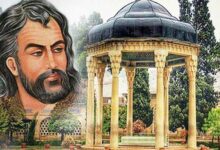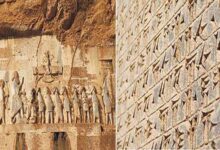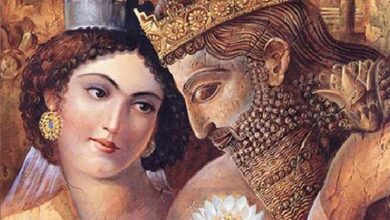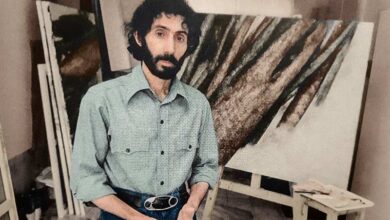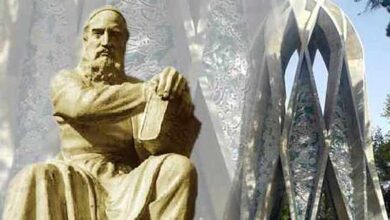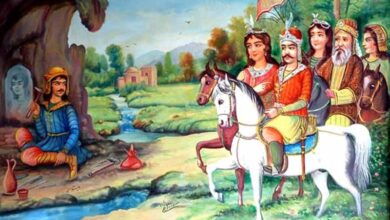Classicism
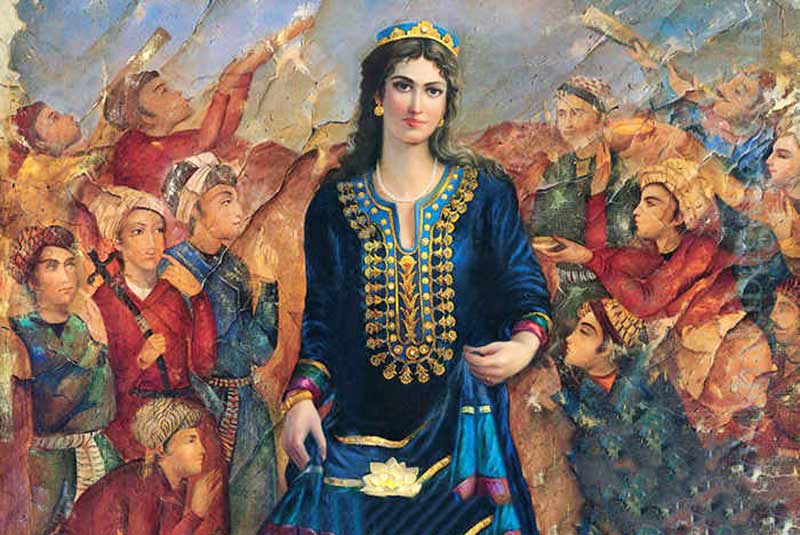
The word classic in its broadest sense refers to all works that are considered examples of national literature and are considered the pride of the national literature of that country.
For example, we can consider all the immortal works of our great poets as classics of Persian literature. But when it comes to literary schools, such a broad meaning is no longer meant. In this case, the classical title refers to the literary school that originated in France before the emergence of other literary schools (in the seventeenth century) and imitated ancient Greek and Roman literature.
We say in France because this school, if the general meaning of the word is omitted, is specifically a French school. In other eras or schools, such as the Renaissance, Romanticism, or Symbolism, one can easily speak of a general European current. But little resemblance can be found to the literary tendencies that have been called classical in the seventeenth and early eighteenth centuries in various European countries. And it is only in France that this movement has been organized and has become a certain school.
It is not bad to look at the use of this word here historically and semantically.
In the second century AD, the Roman scholar Aulus Glius divided writers into two groups: the sculptor classlcus and the sculptor classlcus (popular writer). And referred to the title of classical writer as an author whose works are worthy of study by the upper classes of society. Gradually, this adjective gained a wider meaning and was applied to works that are worthy of teaching in classrooms and can be used to educate the younger generation. These writers, whose works were suggested as role models for students, were naturally considered the best writers. And the word classic was equated with the undoubted superiority of the work.
Top works, especially for teachers, are naturally works that have retained their importance and value over the centuries. And in fact, they are the same buildings that, according to Ferdowsi, have not been bitten by wind and rain. For this reason, in most modern European languages, classical works are the same as old works, but in addition, new writers whose works deserve to be placed next to the works of old greats are called classical writers and their works are called the classics of their literature. For example, the works of Tolstoy. Goethe and Proust are called classics of Russian, German and French literature.
Classicism is the intellectual and artistic movement of the second half of the 17th century in France. Among the most famous representatives of this movement are: Racine, Lefontaine, Brewer, Pascal, Molière, La Rochefoucauld, Lefebvre, Bosso, Boalou. Classicism is often seen as a school opposed to Romanticism and Baroque.
Classicism Feature:
Classicism is based on the principle that a work of art requires artistic and technical work and does not come from inspiration alone.
– The classic author believes that there is human nature and the drawing of this human spirit will remain valuable throughout the ages.
– Old writers are admired and imitated by classic writers.
– Classical art seeks order and moderation in art.
This style refers to the literature that existed in Europe before the emergence of other schools and between the 15th and 17th centuries, which itself was imitated from the art of ancient Greece and Rome.
In fact, the original classical art is the same as ancient Greek and Roman art, and the most important law in classical writing or work is the imitation of nature. But it should not be overlooked that followers of other schools also consider themselves inspired by nature. In the classical school, various types of literary works, such as social classes, are hierarchically classified.
1- Epic and Novel
The characteristics of the epic are its warlike grandeur and the prominence of its subject and heroes. In the epic, national heroes are brought to the greatness of God. They are perfect, brave, courageous, self-respecting, chaste in every way, and their mistakes are not devoid of heroism.
Ferdowsi’s Shahnameh, Homer’s Iliad are at the peak of these stories. And when the story is told in prose instead of poetry, a novel is created. The same epic principles are used in the novel, with the difference that in the epic of war; And in the novel, love is the first place.
2- Tragedy
Aristotle says in the definition of tragedy: Tragedy is the imitation of a serious and complete incident and has a certain scope, with a beautiful expression that its beauty is the same in all parts and has a dramatic form and not a story and anecdote. And purify and purify the emotions of the people by using terror and pity.
The hero of the tragedy must not be a criminal; Also, he should not be very pious and righteous. (It must have gone from happiness to gloom, but not as a result of crime but as a result of error). The hero of the tragedy must also have a family or emotional relationship with the people who make up the other party in the tragedy.
3- Comedy
Comedy is an interesting play in which people are lower characters than tragedy and its events are taken from everyday life. In the original comedy, the reality show should be considered more than other cases and it should have a happy ending and the incident should have an innovative aspect.
The general principles and rules of this style are as follows:
Imitation and display of nature: The classical artist must be a good creator above all.
Attention and imitation of the ancients: looking and fear for the gods of ancient taste and art, and finding the best and most prominent artistic forms of the past.
Principle of reason: The effects in this school must be in accordance with the principles of reason.
Truthfulness: The heroes of this school have what is good.
However, it must be said that the main classical art is the same art of ancient Greece and Rome. Seventeenth-century French poets, following a movement called humanism, took this ancient art as their model and followed their fixed rules, which were adapted from ancient Greek and Roman literature, especially Aristotle’s. Created. Of course, this movement originated in Italy and Spain a century before it appeared in France. The Spaniards left no impression on the French. Because although they began researching Aristotle in the sixteenth century, they tried to adapt these rules to the rich and valuable literature they had and create new literature, so they failed to create an established literary system. .
But there is no doubt that French theorists owe all their studies and legislation to Italian humanism.
Humanism
The movement that first emerged under the name of humanism in Italy at this time was named after the Romans. Because the Romans in their time had established a literary and philosophical system called studia humaniatis to study and research the works of ancient Greece. And they believed that in the shadow of studying ancient works, one can develop human spiritual power and make him more humane, that is, more civil.
The word humanism originally meant (free studies). In the first view, study (human literature) or (human race literature) refers to literature different from (theology). Thus humanism means non-religious studies. But the point to note is that there is no confrontation at all. Rather, if there is a confrontation, it is a confrontation with medieval secular literature, which often had no literary value. In order to get acquainted with this issue in more detail, it is better to quote the same words of V. L. Saulnier from the treatise (Spirit of the Renaissance) in (History of World Literature) by Pliad Publications:
(If special cases have given the word humanism a secondary meaning, which is the literary study of Greek and Roman texts, ie the works of atheistic culture, it is because the only texts that the Renaissance was able to access were the same works. Humanism, which by definition differed from their studies with the Church, had no intention of opposing them, but instead sought to put a new enlightenment at the service of faith and religious studies.
But humanists imitated the lifeless and dead language of the past. They despised the vernacular and as a result were deprived of the spirit of the people, that is, national taste and art, even though many fans had gathered around them. Because it was not possible for most people to learn Latin, they did not understand their work.
Hence in the first sixty years of the fifteenth century, while on the other hand (humanists) were engaged in creating a kind of aristocratic literature in Latin. On the other hand, there was a simple and beautiful folk literature among the people. Finally, Italian humanism, which began in the fourteenth century with a return to Latin language and literature, led to the creation of a new national literature in the sixteenth century. In this way, Italian humanism, which had a purely aristocratic aspect and did not even consider Dante a poet because he spoke in the language of the people, lost its nature.
Humanism and the Renaissance in France
Between 1546 and 1550, a number of young artists suddenly discovered the principle (beauty) in literature. This discovery was the result of their direct acquaintance with the masterpieces of Greek poetry, and some of the finest Latin poets, Petraeus and finally the Italian Renaissance poets who wrote poetry in Latin.
In the Middle Ages, attention to innate talent, ease of expression, and the spontaneity of words spontaneously and impromptu overshadowed the concept of art.
Paris coqueret, Ronsard and his friends, with the masterful guidance of their Greek teacher (Dora) dorat, first became acquainted with the works of Homer Sophocles and the Alexandrian poets. As a result, the concept of art became of paramount importance to them. One point should be noted here. Although in the Middle Ages there were undoubted masterpieces in painting, architecture, poetry and even music; But all these works were either the product of exceptional talents or the product of precise calculations. But none of the artists who created these masterpieces are thought to have thought that to achieve beauty one can refer to a set of rules and regulations and a more or less coherent system. Because beauty has its own rules, there were many examples in the realm of art and also in the realm of knowledge. But there were no principles and rules.
We do not know to what extent (Dora), who introduced the young poets of Pleiades to Greek texts, helped them to create a new poetic art. Because this poet-scientist wrote poetry in Latin, while his followers wanted to use French in poetry. There is no theoretical work left of him, and it is strongly suspected that all his teachings and teachings were oral and disappeared. But among his students, two (Ransar) and (dubbed) du bellay from the very beginning who started writing poetry; At the same time, they insisted on setting the principles and rules of poetry. And this has been the case throughout his poetry, which has been very short about (dubbing) (1560-1522) and long about Ransar (1585-1524); Have continued. First of all, these two firmly believe in the sacred and even divine aspect of poetry. And most of their theories stem from this perception. And from the idea that you can not come to the top professions with little effort.
If poetic genius is a divine gift and the most valuable of all gifts is the right not to betray it by procreation and ignorance. From the day when poetry was considered as a ritual (and not a means of spending time), rituals and ceremonies became necessary for it. This ceremony must be performed with great care. And everyone who has given in to this ritual should not be subject to his whims and desires.
The rules of the poetic profession are in fact the exact and serious teaching of this ritual and ceremony. Ransar in (Summary of the Art of Poetry) reminds us that poetry was originally a religious element. And warns the poet not to achieve it without merit. Says:
“Poetry in the early days was a kind of metaphorical divine wisdom rather than a mystery that primitive humans would not have understood if it had been told openly. Poetry has a divine origin. It must be said that in turn it gives the poet a heavenly aspect. Because it gives him immortality, as much as the poet feels proud of the divine principle of his inspiration, he must be as humble in the application of his genius, and the healthiest humility is first and foremost bowing to those who are great. It was an art (meaning ancient Greek and Roman poets).
What the poet has to learn from the poets of antiquity is first and foremost their literary types. (Dubbing) Before others, he realized the importance of the literary genre and realized that inspiration could not be a separate phenomenon, independent of the format in which it was to be cast.
In his view, the futility of medieval and contemporary poetry was more a product of their forms. In his famous work, entitled: langue frangalse defnse et illustration de la (defense of the French language and its rationale), he declared that until that day everyone French poets were nothing more than ignorant rhymers. And only Greek and Latin poets are real poets. And the French can get to their feet after getting acquainted with their works. Or overtake them.
In general, the second half of the sixteenth century was a period in which for the first time a large literary religion was created to create literary works. And these customs had principles that did not lose their value and credibility even until the end of the eighteenth century, and it was these principles that led to the creation of the classical school at the beginning of the seventeenth century.
* Sources and references are available in the editorial office of Artmag.


